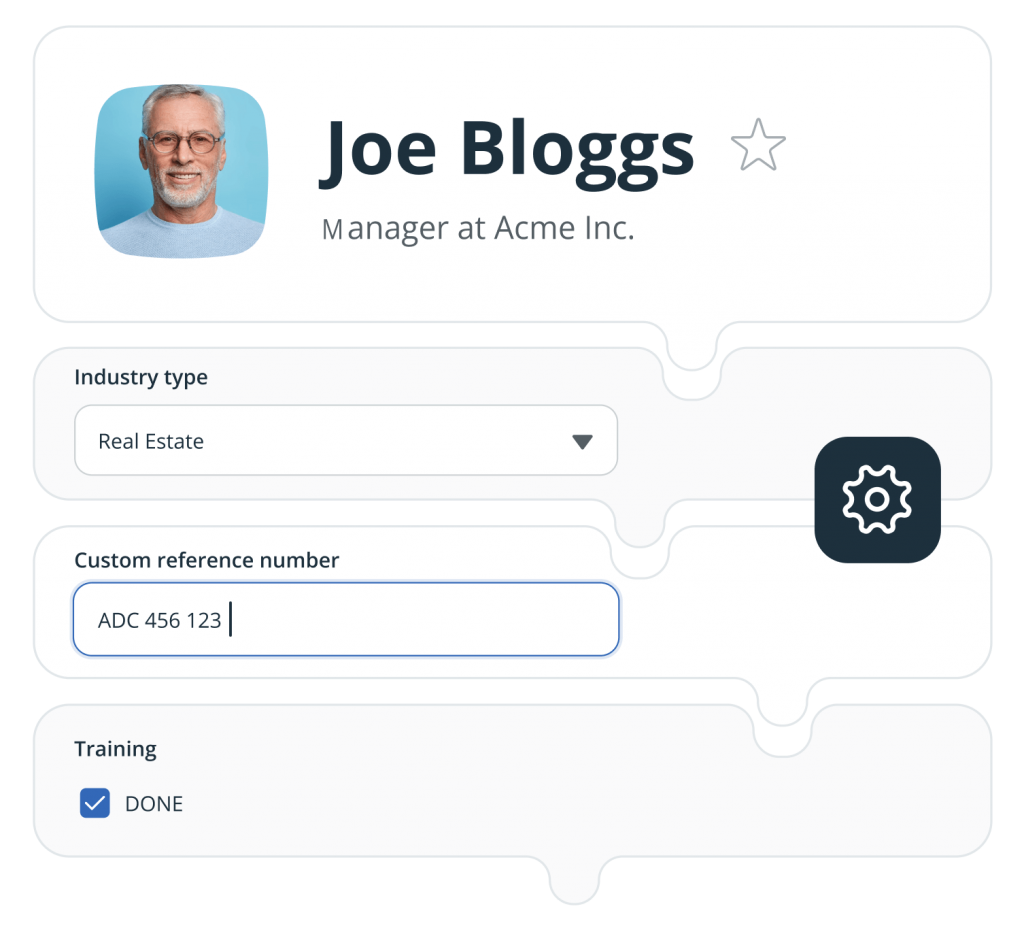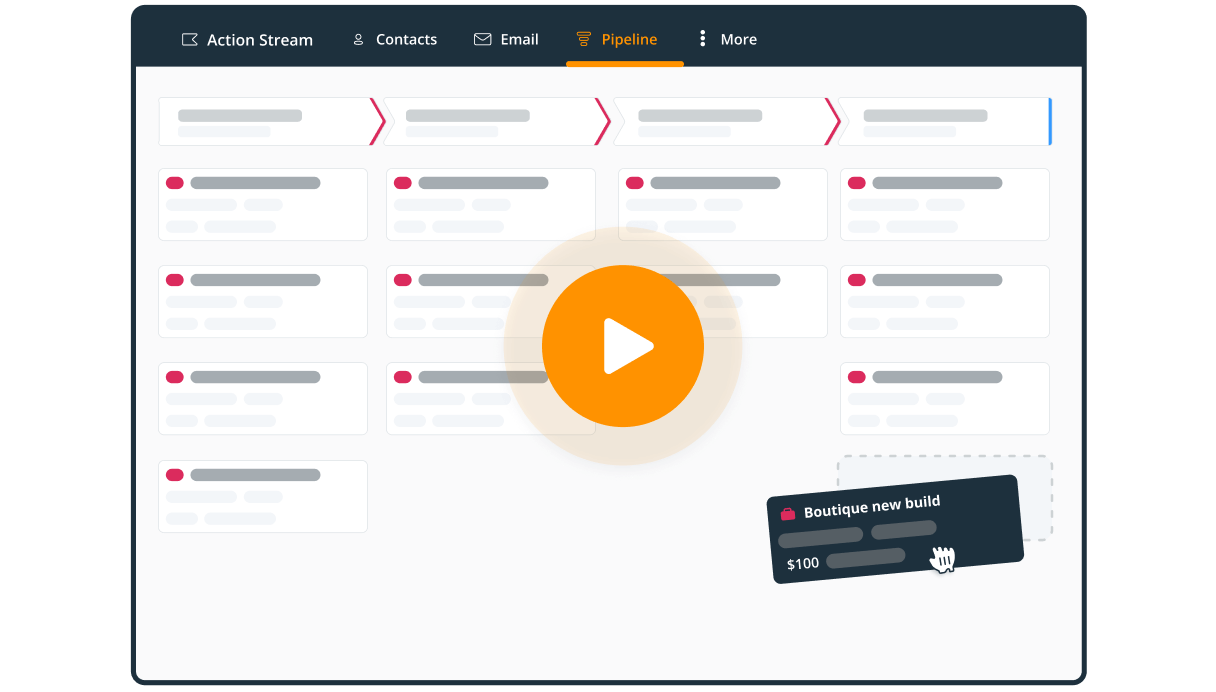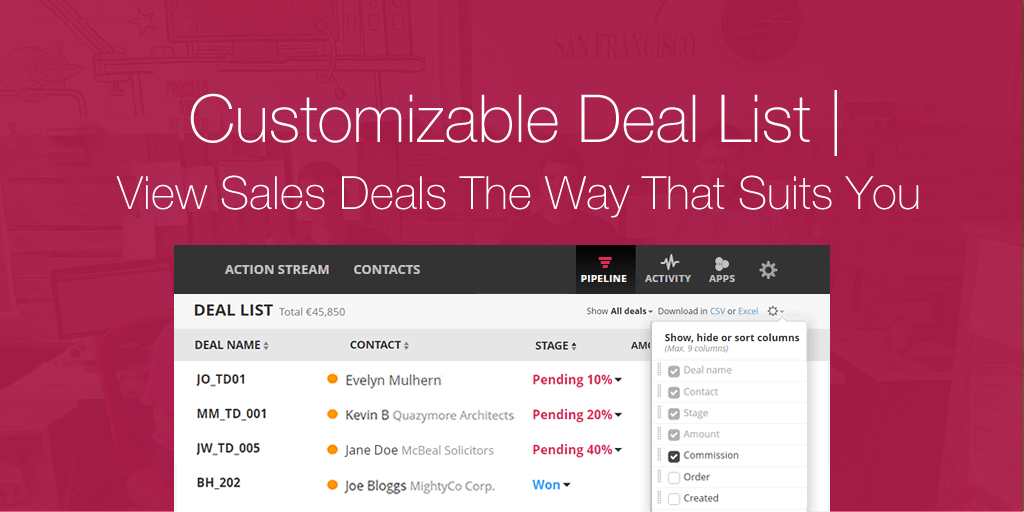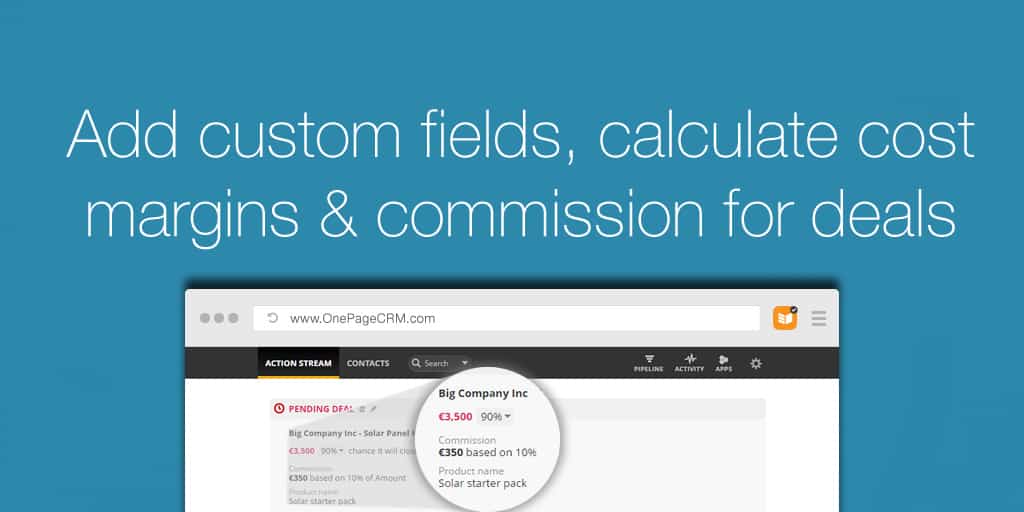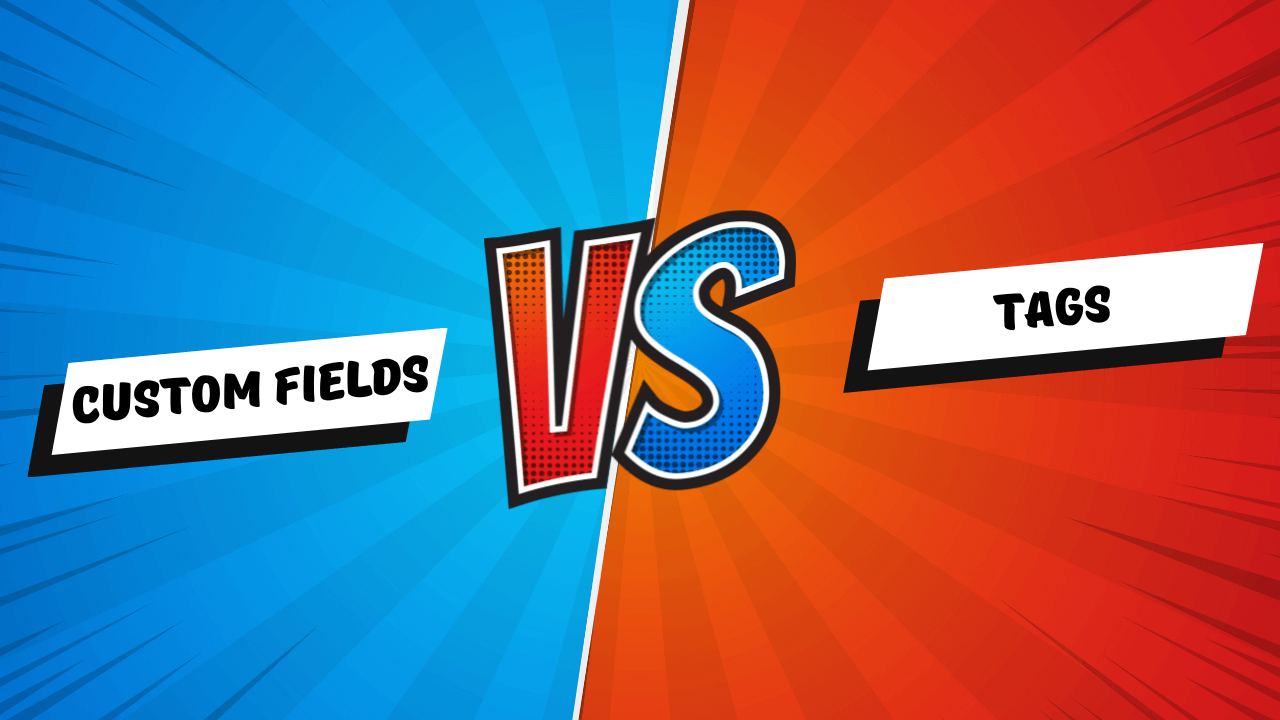
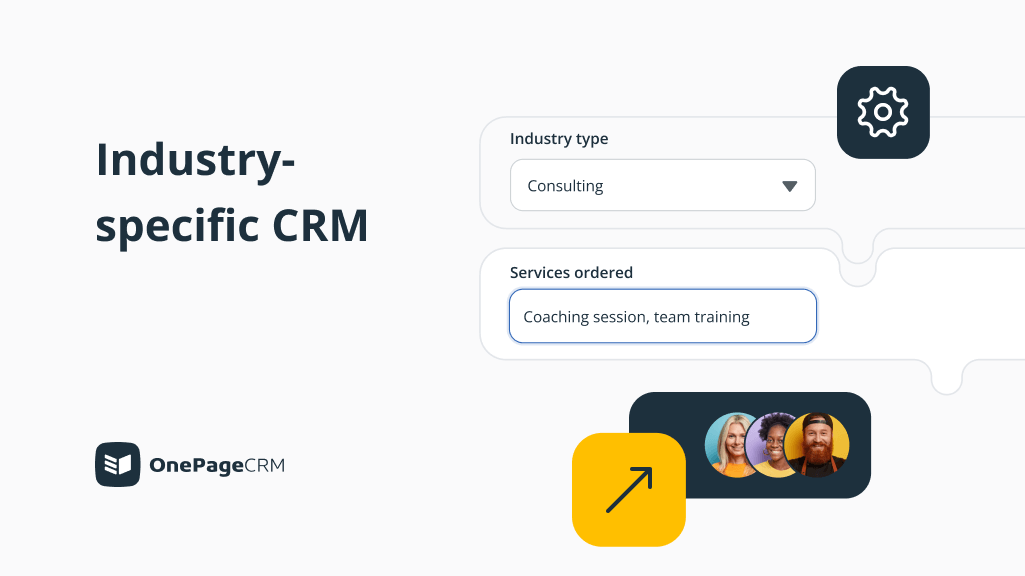
Industry-specific CRM: Is it good for your small business?

At OnePageCRM, we believe that a CRM system for small businesses should be simple, flexible, help you generate growth, and build long-term relationships.
Unfortunately, this is not always the case. Sometimes CRM systems have so many features and integrations that small businesses feel overwhelmed.
While you deserve a simple CRM system that will help you grow faster and more efficiently, does it mean you need an industry-specific CRM?
What is an industry-specific CRM system?
Besides the basic CRM features, it has a layer of specialized functionality. For example, a CRM for property managers will have features for managing multiple properties as well as relationships with landlords and tenants. It will have features for lease contracting and integrations with different listing websites.
The most common CRM classification is the classification by industry.
There are CRMs for banks, hospitals, law firms, etc. You can go even deeper and find the one that fits a very niche industry.
Do small businesses need an industry-specific CRM?
Industry-specific CRMs can be narrow-focused but they work well for medium-sized and large organizations or companies that need highly specialized functionality.
But if you’re a small consulting business with a few dozen employees, then a complex CRM system will slow down your growth.
Eventually, you’ll spend more time trying to figure out how it works and setting it up instead of growing your business.
Small businesses in their growth stage need a simple CRM solution that is easy to set up and doesn’t require any training or adjustment period.
If you are looking for a simple CRM that will help you get more clients, grow faster, and strengthen your existing business relationships, then you need an action-focused CRM.
What is an action-focused CRM?
An action-focused CRM is a powerful combination of a simple contact database and a productivity tool. All contacts in the action-focused CRM have tasks or reminders (the so-called ‘Next Actions’, the next best steps you need to take with a specific contact).
The action-focused CRM doesn’t only sort your contacts in the traditional A-to-Z way, it also sorts them in a dynamic to-do list where the most urgent tasks float to the top.
In other words, an action-focused CRM helps businesses treat all contacts like assets rather than dormant data that is passively stored in their databases.
How does OnePageCRM adjust to my industry?
At the very beginning, when you register your account, we ask you for some basic information, including your industry.
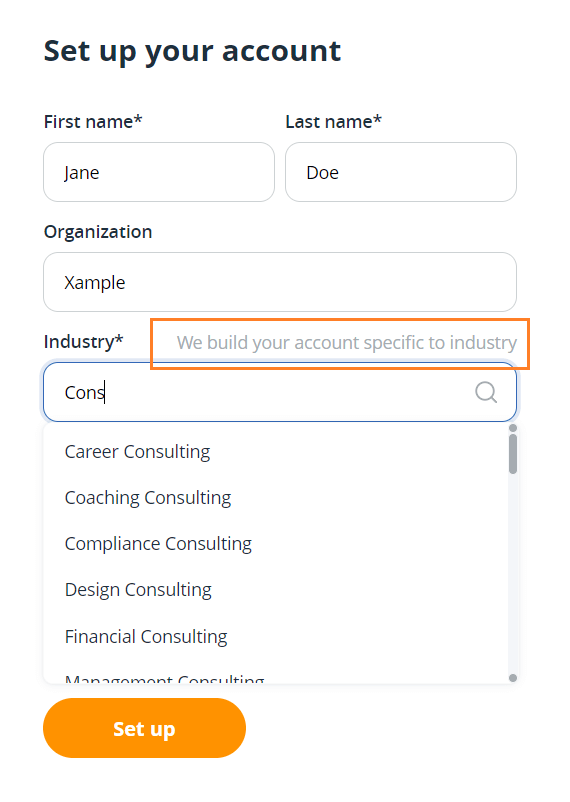
Once you complete the onboarding process—which, by the way, takes just a couple of clicks—we’ll make sure that your CRM system speaks your language.
For example, if you work in consulting, OnePageCRM will refer to your contacts as clients instead of customers. If you work in real estate, you’ll be able to differentiate between buyers, sellers, and tenants.
You’ll also notice that your pipeline is customized to your industry. For example, as a consultant, you might have different milestones for every project:
- Meeting arranged
- Decision made
- Proposal sent
- Negotiation
- Payment
If during registration, you chose consulting as your industry, OnePageCRM will visualize your business process using your language.
For example, in the pipeline, you’ll see what deals you have, their current status, different milestones (you can adjust them as you need), and the overall progress.
You can also easily move your projects and deals through different stages of the pipeline.
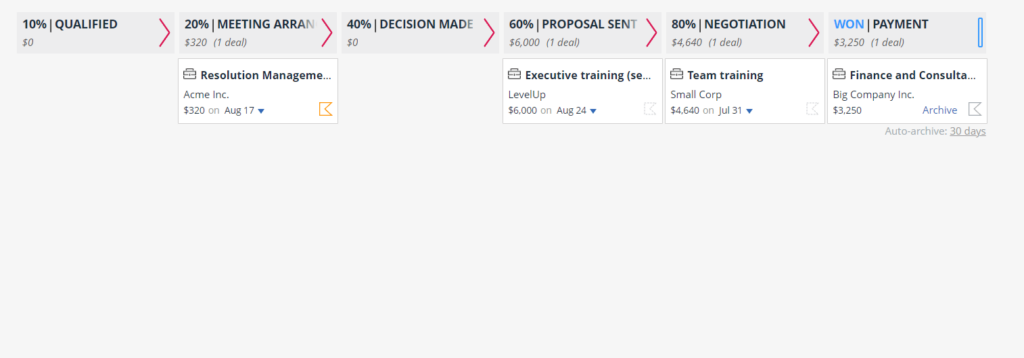
Besides, you can customize OnePageCRM even further.
For example, if your consulting business provides specific services, you can add custom fields to your contacts to make it easier for you to segment, group, or tag your contacts.
